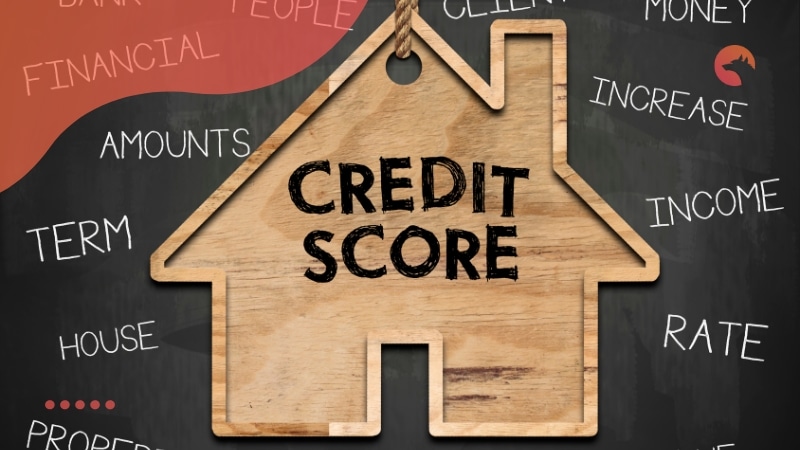Credit score needed for mortgage approval is one of the most critical factors when it comes to securing a loan to buy a home. Your credit score serves as a measure of your financial health and determines the risk you pose to lenders.
A higher credit score typically means you are a lower-risk borrower, making it easier for you to qualify for a mortgage and secure better terms. On the other hand, a lower score may limit your options and result in higher interest rates.
Understanding the credit score required for a mortgage and how it affects your ability to purchase a home can help you make more informed decisions about your home-buying journey.
Whether you’re a first-time homebuyer or looking to refinance an existing loan, your credit score is a vital piece of the puzzle. In this article, we’ll explore the different credit score ranges, how they impact your mortgage application, and how you can improve your credit score to increase your chances of approval and get the best mortgage rates available.
Additionally, we’ll dive into the various types of mortgage loans available, including conventional, FHA, VA, and USDA loans, and explain how the credit score needed for mortgage approval can vary depending on the loan type.
What is a Credit Score?
A credit score is a numerical representation of your creditworthiness, essentially summarizing how reliable you are at managing debt. It is a crucial component in the decision-making process for lenders, helping them assess the likelihood that you will repay borrowed money on time.
More specifically, your credit score is calculated using an algorithm developed by one of the three major credit bureaus: Equifax, Experian, and TransUnion.
This algorithm weighs different components of your financial behavior to determine your score. For example, your payment history, which makes up about 35% of your score, is one of the most significant factors.
If you have consistently paid your bills on time, you’re likely to have a higher score. Conversely, missed or late payments can significantly lower your score.
The amount of debt you carry, or your credit utilization rate, accounts for approximately 30% of your score. This is the ratio of your credit card balances to your credit limits. Ideally, you should aim to use less than 30% of your available credit to maintain a favorable score.
The length of your credit history, which makes up 15% of your score, is another important element. Generally, the longer you’ve managed credit responsibly, the better your score will be.
Now, you might be wondering, What is a good credit score? Typically, a good credit score is one that falls above 700. Borrowers with scores in this range are usually offered favorable mortgage terms, such as lower interest rates and reduced fees.
However, it’s important to remember that what constitutes a “good” score can vary depending on the type of loan you’re applying for. For instance, a good credit score for a conventional loan may differ from the score needed for an FHA loan.
Why Does Your Credit Score Matter for a Mortgage?
Your credit score plays a critical role in the mortgage approval process. Lenders use this number to assess the risk of lending to you. A higher score indicates that you have a history of responsible borrowing and are likely to repay the loan on time. On the other hand, a lower score suggests that you may be a higher risk borrower, which could result in higher interest rates or even a loan denial.
In addition to determining whether or not you will be approved, your credit score also influences the interest rate and terms of the mortgage. Borrowers with higher scores generally receive lower interest rates, while those with lower scores may be charged higher rates to compensate for the perceived risk.
Credit Score Ranges and Their Impact on Mortgage Approval
Credit scores typically range from 300 to 850. Here’s a breakdown of what different score ranges mean for mortgage eligibility:
- Excellent (750 and above): If your credit score falls into this category, you are in the best position to receive favorable mortgage terms. You are likely to qualify for the lowest interest rates available.
- Good (700-749): A score in this range still qualifies you for competitive rates, although they may not be as low as those offered to borrowers with excellent credit.
- Fair (650-699): While you may still be able to secure a mortgage with a score in this range, the interest rates may be higher, and you could face more stringent qualification requirements.
- Poor (600-649): With a credit score in this range, securing a mortgage could be challenging. You may need to provide a larger down payment and accept higher interest rates.
- Very Poor (below 600): If your credit score falls below 600, it will be very difficult to qualify for a traditional mortgage. You may need to consider government-backed loans or work on improving your credit before applying.

What Credit Score is Needed for a Mortgage?
The credit score needed for mortgage approval can vary depending on the type of loan you are applying for. Let’s explore the credit score requirements for different types of mortgages.
1 – Conventional Loans
Conventional loans are not backed by the government and are typically the most common type of mortgage. For these loans, lenders generally require a minimum credit score of 620. However, to receive the best interest rates and terms, a higher score is recommended. Borrowers with a score above 740 are often offered the most favorable terms.
2 – FHA Loans Credit Score Needed for Mortgage
FHA loans are backed by the Federal Housing Administration and are designed to help first-time homebuyers and those with less-than-perfect credit. The credit score needed for mortgage approval with an FHA loan is typically lower than that of conventional loans.
Borrowers can qualify with a credit score as low as 580 if they are able to make a 3.5% down payment.
3 – VA Loans
VA loans are available to active-duty military members, veterans, and certain members of the National Guard and Reserves. These loans are backed by the U.S. Department of Veterans Affairs and generally do not have a minimum credit score requirement. However, most lenders prefer a credit score of at least 620 for VA loan approval.
4 – USDA Loans Credit Score Needed for Mortgage
USDA loans are designed to help low- and moderate-income buyers purchase homes in rural and suburban areas. To qualify for a USDA loan, a borrower’s credit score must typically be 640 or higher. However, the USDA also allows for some flexibility, and borrowers with lower scores may be able to qualify through manual underwriting if they meet other criteria.
Other Factors Lenders Consider for Mortgage Approval
While your credit score is crucial, it’s not the only factor that lenders consider when evaluating your mortgage application. Here are some additional factors that can impact your approval:
- Income and Employment History: Lenders will want to ensure that you have a steady income and a reliable employment history. A stable job and consistent income will give lenders confidence that you will be able to repay the loan.
- Down Payment: The size of your down payment can also affect your mortgage approval. A larger down payment reduces the lender’s risk and can help you secure better terms. For conventional loans, a down payment of 20% is typically required to avoid private mortgage insurance (PMI).
- Property Appraisal: Lenders will require a property appraisal to ensure that the home you are purchasing is worth the price you are paying. If the appraisal comes in lower than expected, the lender may not approve the loan or may require you to come up with additional funds.
Conclusion
In conclusion, the credit score needed for mortgage approval is an essential factor in the home-buying process. Your credit score determines not only your eligibility for a mortgage but also the terms and interest rates that will be offered to you.
Higher scores generally lead to better loan terms, while lower scores may limit your options or result in higher interest rates. Understanding the different types of loans and their corresponding credit score requirements can help you make more informed decisions.
If you’re looking to improve your credit score before applying for a mortgage, focus on paying bills on time, reducing your debt, and avoiding new credit inquiries. With effort and time, you can raise your score and increase your chances of securing favorable mortgage rates.
For more detailed information on credit scores and mortgages, you can visit the official website of the Federal Housing Administration (FHA) for further guidance.



